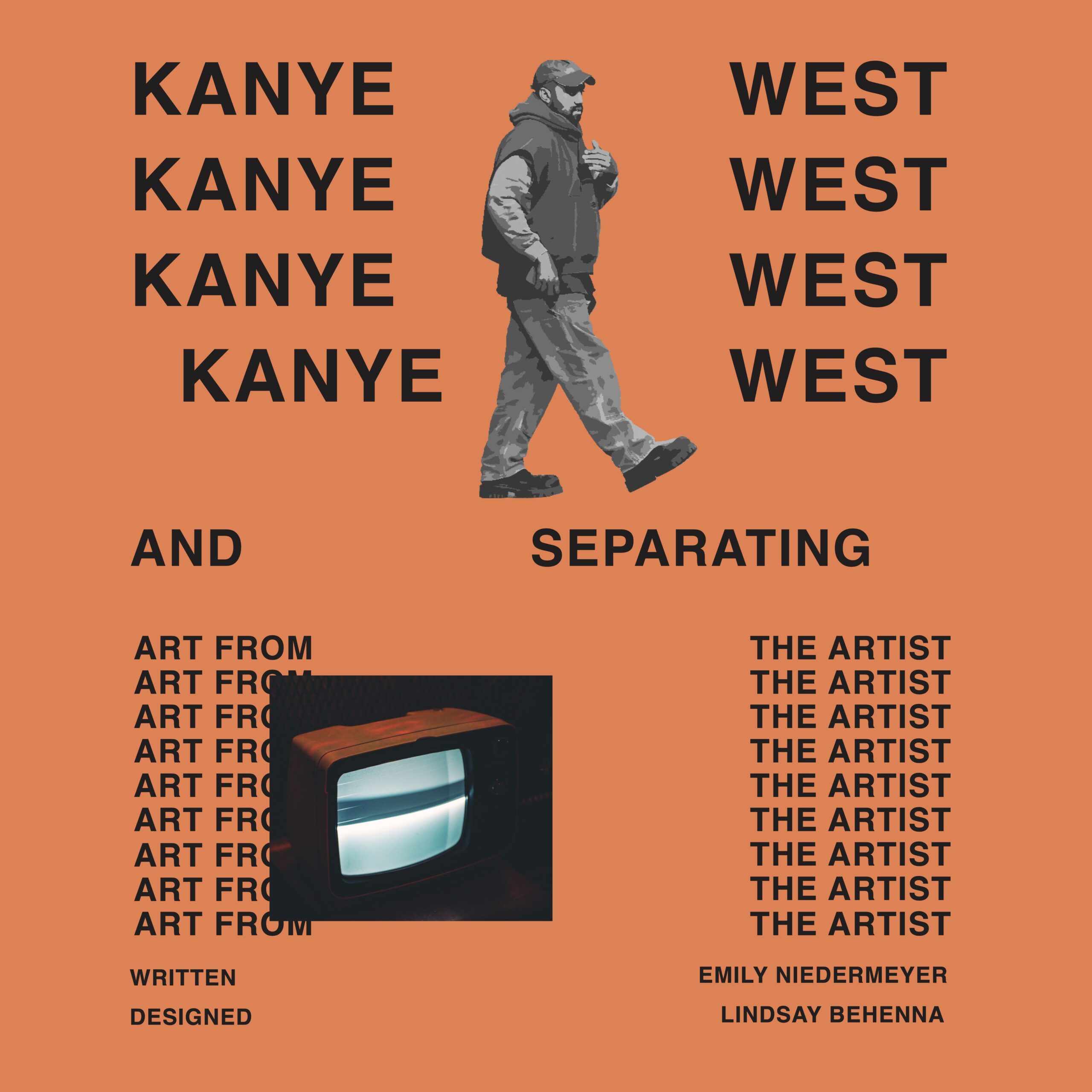
With a long career spanning from music to fashion design, Ye, formerly known as Kanye West, has established himself as a star. He has released 11 studio albums, a multitude of collaborations and other works, and has 51 million monthly listeners on Spotify, making him the 19th most popular artist on the platform. His work in high fashion has also helped his rise in fame, from fashion collections to his brand Yeezy, now known as YZY, a collaboration with German sportswear company Adidas.
For the past year, however, the rapper and designer has spurred numerous controversies due to his increasingly troubling behavior.
In March, West was banned from performing at the Grammy awards. In April, he was withdrawn from headlining Coachella. In October, it appeared as though the internet had enough when West wore a “White Lives Matter” shirt at Paris Fashion week and then made a number of antisemitic remarks, later doubling down on the rhetoric and aligning himself with white supremacists.
West insinuated that Jewish people control the music industry and darkly referred to going “death con 3 on JEWISH PEOPLE,” in a now removed tweet on Twitter.
In response, many brands cut ties with him and denounced his words, including Adidas. After weeks of his erratic behavior and offensive language, the company and the key to his “fashion empire” announced that it would cut ties with him. The move is anticipated to cost the company 250 million euros ($246 million) this year.
Now the question arises, as it has for all the other artists who have committed wrongdoing and been rejected by the music industry: should we separate the art from the artist?
As Intelligence Debates wrote, “it’s a question at the heart of both pop culture and high art critique.” It has been raised for a variety of celebrities and creators across the entertainment spectrum, such as J.K. Rowling and her transphobic twitter posts, Michael Jackson and the allegations of pedophilia, Pablo Picasso and his reputation of being a misogynist, or Chris Brown and his history of abuse towards women.
Some believe works of art are entities in themselves. They should be valued separately from the creator. For others, supporting works of art means supporting its creator and therefore giving the creator’s actions and opinions a platform to have influence on people.
Do we remove the artists’ songs from our playlists? Do we stop wearing their clothing brands? Or do we continue to listen and support them knowing that their beliefs and actions don’t align with our own morals?
In a poll conducted by WOOF Magazine, 100% of respondents were aware of the recent controversy surrounding Kanye West. 46.2% were not listeners to Kanye prior to the events of October. 30.8% listened to him often and 23.1% listened to him occasionally.
Of the 14 respondents who did listen to West, 57% said that they stopped listening entirely to him, 21.4% cut back on listening to his music and 21.4% still listened to him just as much as they had previously.
Respondents cited West’s “horrible” comments and values so different from their own when deciding to stop supporting him. One said “we shouldn’t be continuing to stream the songs and financially contribute to someone actively spewing antisemitism, racism and all types of hatred.”
Opinions on whether we should separate the art from the artist were mixed. Many believe that when you support the art, you inherently support the bad person and give permission for them to continue their harmful behavior, especially when support is a direct pipeline to their profit.
One said separating the art is “a weak excuse to not hold people accountable for their actions.”
Others believed that unless the art is “directly rooted in the controversy” you can separate it from the artist.
Ultimately, the longevity of Kanye West and his future success or downfall depends on listeners. Many brands have cut ties with Ye. Will fans and listeners decide to cut ties too?